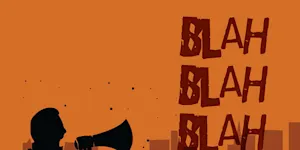What Makes This Word Tick
"Enunciate" is a precise word with a definite flair for clarity. It emphasizes the importance of clear and distinct communication, especially when it comes to pronunciation. This word pops up often in speech classes and vocal training sessions, where it acts like a gentle reminder to open your mouth and let every syllable shine.
If Enunciate Were a Person…
Enunciate would be that exacting teacher in a language class who spots every mispronunciation, or perhaps an opera coach who won’t settle for anything less than vocal perfection. You’d find them calmly correcting people's speech all while sipping a cup of Earl Grey tea.
How This Word Has Changed Over Time
Over the years, "enunciate" has maintained a steady course without significant semantic shifts. Originally stemming from Latin, it began its life meaning “to announce." While its focus has narrowed down to clear speech, its root connotation of making something known remains intact.
Old Sayings and Proverbs That Use Enunciate
While "enunciate" itself doesn't feature prominently in traditional proverbs, its spirit is alive in sayings urging clarity, like “Say what you mean, and mean what you say.” It’s all about ensuring your message is as crisp as a fall morning.
Surprising Facts About Enunciate
The spotlight on enunciation has turned many famous actors and public speakers into aficionados, practicing tongue twisters to keep their articulation sharp. One of the best uses of "enunciate" comes from the need to be understood in multilingual meetings or over crackly phone lines.
Out and About With This Word
Next time you’re slurring words into a drive-thru speaker, remember enunciate! It serves as a helpful ally when ordering is vital—no one wants a “big macchiato” instead of a Big Mac.
Pop Culture Moments Where Enunciate Was Used
In pop culture, "enunciate" gets particular traction in films revolving around music and speech, such as "My Fair Lady." The word encapsulates the journey from a Cockney accent to the Queen’s English—a transformation celebrated on many a silver screen.
The Word in Literature
In literature, enunciation is often described with reverence. It appears in works that focus on dialogue and speech patterns, from P.G. Wodehouse's humorous tales to the eloquent dialogues of classic plays. It's about the art of being heard and understood.
Moments in History with Enunciate
Picture Winston Churchill preparing for one of his historic speeches. Though not recorded in the history books, one imagines enunciation being highly valued, ensuring every hopeful word during a wartime broadcast was crystal clear to listeners.
This Word Around the World
In Germany, "deutlich sprechen" conveys a similar meaning—"to speak clearly." The importance of enunciation transcends borders, with each language cherishing its way to ensure words aren't lost in mumble jumble.
Where Does It Come From?
This word travels back to the Latin "enuntiare," meaning to declare or proclaim, combining "e-" (out) with "nuntiare" (to announce). Over time, it settled into its current use, focusing more on clarity of pronunciation than on proclamation.
How People Misuse This Word
People sometimes use "enunciate" when they mean "pronounce." The latter involves more of the sound, while enunciation focuses on clarity and preciseness. If you’re mumbling, you might be mispronouncing, but you’re definitely not enunciating.
Words It’s Often Confused With
Pronounce: Pronunciation refers to the correctness of a sound, while enunciation concerns clarity.
Announce: Very different context; announce is about making a public statement.
Dictate: Though both involve speech, dictate is often about reciting, not clarity.
Additional Synonyms and Antonyms
Synonyms include articulate, express, and state. Antonyms might include mumble, whisper, and mutter.
Want to Try It Out in a Sentence?
“How clearly you enunciate can make or break your presentation, ensuring your audience catches every word.”
















